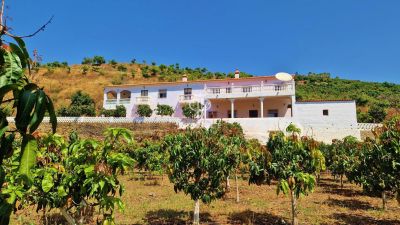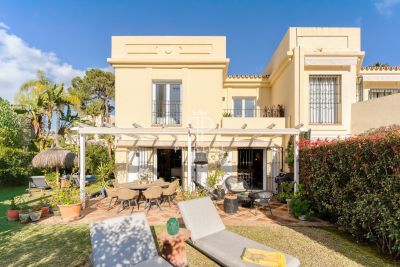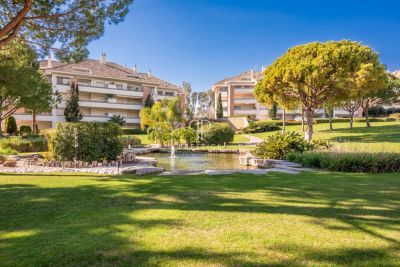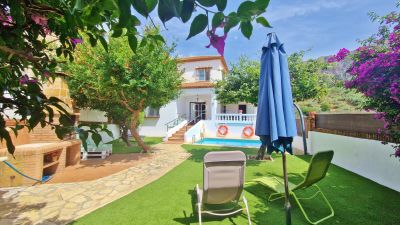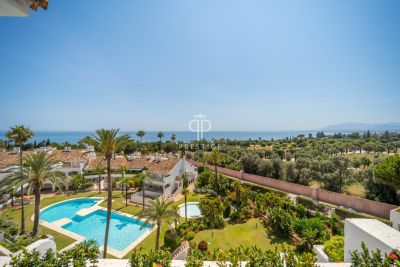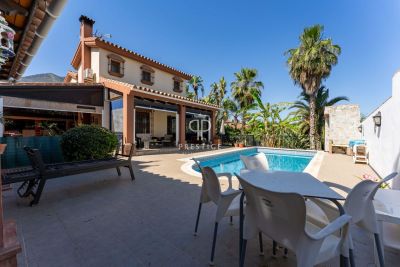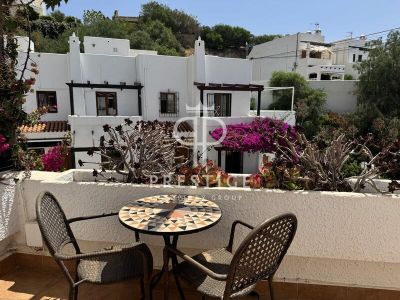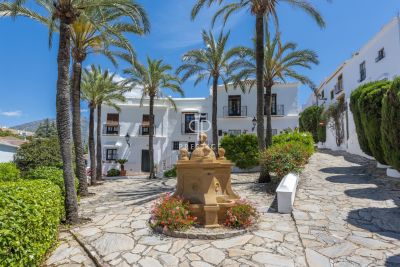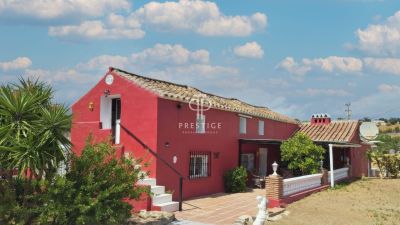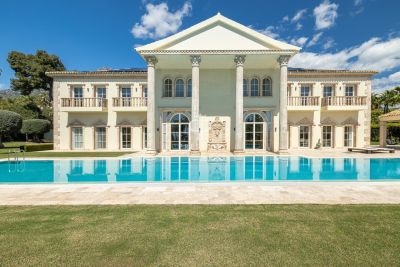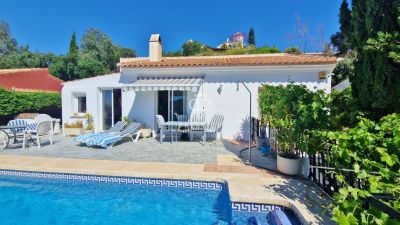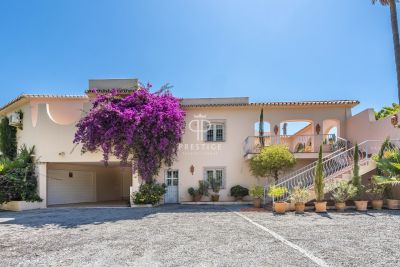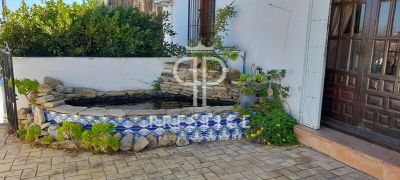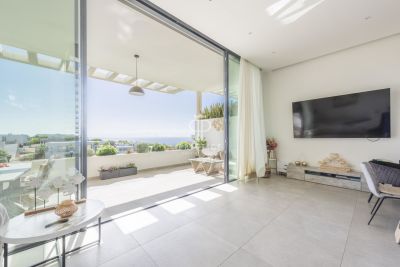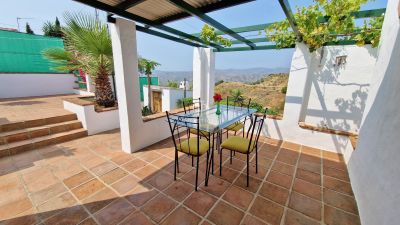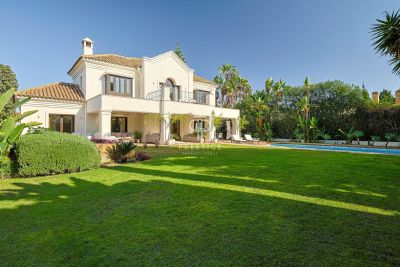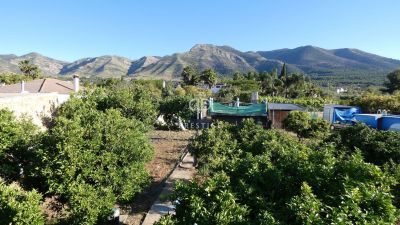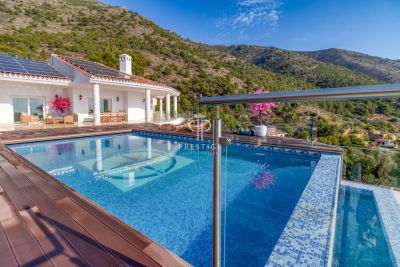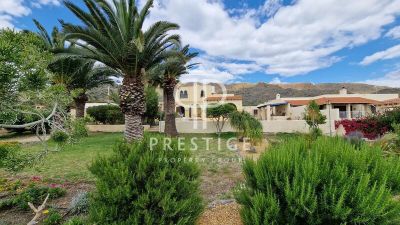Andalucia Property
Area Guide
The Area
Possibly the most attractive resort on the Costa del Sol, Nerja lies some 50kms east of Malaga. Nerja has managed to blend its natural charm and the peace and quiet of a fishing village with the modern services of a first class resort. Nerja has recently been developed omitting the usual high rise buildings found in other resorts. The policy of the local government is to limit highrise building to a minimum.
Nerja's centrepiece is the Balcon de Europa, a palm-fringed promenade offering wonderful views of the coastline. From here you can walk into the old town, a maze of narrow cobbled streets filled with interesting shops and boutiques, cafes and a large number of restaurants, many of which are highly recommended. In the evening this whole area has a wonderful atmosphere.
Within the town itself there are a handful of small sandy coves plus the lovely Burriana Beach 1km away where a variety of watersports are available along with several beach bars and restaurants. The beach can easily be reached from the town via the newly-built cliff top path.
A short drive from Nerja is the pretty, unspoilt, white village of Frigiliana. A peaceful village spread over two hills, made up of narrow streets with whitewashed houses decorated with flowerpots and hanging flowers. An enchanting place where the natives are friendly and the prices are reasonable.
Sierra Nevadas fine skiing resorts are less than two hours away from Nerja.
Activities
Well worth a visit are the famous Nerja Caves, situated about 5kms from Nerja, near Maro. These form a kind of underground cathedral, containing prehistoric paintings and beautiful stalagmites and reputedly the world's largest stalactite. The caves also hold concerts several times a year in their vast underground auditorium.
There is a market each Tuesday. Facilities like tennis, swimming pools, boat rental and watersports are present. There are lots of beautiful little bays all along the coast. From Nerja one can take the bus to cities like Malaga (58 km) or Granada (100 km).
Buying a Property in Spain
1. Putting down a Holding Deposit
On finding a property you wish to purchase you will need to negotiate the terms, price and conditions of the sale with the owner. This part of the process is not binding. We would recommend using an independent English speaking legal advisor. Once a purchase price has been agreed, normally a holding or reserve deposit will be required to ensure the property is removed from the market. The sum required will vary between properties and will be based on the purchase price. A time limit for the preagreement to be signed will be arranged and there will also be legal checks to be made.
2. Setting up a Pre-agreement (Contrato privado de compraventa)
The pre-agreement will set out the conditions under which the Buyer and Seller agree to complete the purchase of the property and the price they have agreed upon. Relevant details will generally be included for example the property details, purchase price and the date for completion. A deposit will be required at this point, this will vary, but will generally be 10% of the agreed price. This agreement will include a penal clause if the sale does not go through. If the seller pulls out of the sale your compensation will be double the deposit you have paid, but if you decide not to go through with the sale then your deposit will be lost. Certain checks will need to be made before signing the contract, checks should be made against the title of the property, mortgage status and if the property has any debts held against it. The planning status should also be looked into. These conditions can be varied by the seller and the buyer and other types of agreement can be made.
3. The Contract (Escritura de compraventa)
Before a non-Spanish purchaser can buy a Spanish property they will need to have set up a Spanish bank account and obtained a Spanish tax number (NIE). The completion will take place in the presence of a Notary Public. This is a Spanish public official, by law the deed of sale must be witnessed by a Notary Public. You will also need your own independent, expert legal advisor to act on your behalf. On Completion the buyer must pay the balance, that is the price agreed after the deposit has been deducted, plus any other fees on the completion date. Both buyer and seller must sign the Escritura de compraventa contract, (this is the Spanish equivalent of the title deeds). The title deeds (escritura) will be given to the buyer, this will be done in the presence of a Notary Public, they will certify that the transfer has taken place. The tax office will be sent a copy and the property registry will be informed of the transfer.
